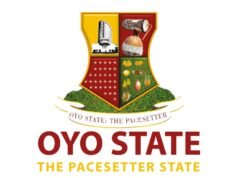There are a number of Australian universities and schools that accept Higher National Diploma (HND) certificates, second class degrees, and third class degrees for admission into their master’s degree programs.
These include the University of Sydney, the University of Melbourne, Monash University, and the University of Western Australia. In addition, many Australian schools that offer postgraduate programs also accept HNDs and other equivalent qualifications.
In this article, we will outline the requirements for pursuing a master’s degree in Australia with a HND certificate, second class degree, or third class degree. We will also provide information on specific universities and schools that accept these qualifications, as well as other useful resources and information. This will help you make an informed decision about where to pursue your studies.
Admission Criteria For Master’s Degree In Australia Universities and Schools
Table of Contents
To be eligible for admission into a master’s degree program in Australia, most universities and schools require applicants to have a bachelor’s degree or equivalent qualification from a recognized institution. In addition, many universities and schools require a minimum grade point average (GPA) for admission.
The below are other admission criteria for Master’s degree in Australa:
- Bachelor’s Degree: A completed bachelor’s degree from an accredited institution is generally required for admission to master’s degree programs in Australia. The degree should be relevant to the field of study or demonstrate adequate preparation for the intended master’s program.
- Academic Transcripts: Applicants are usually required to submit official transcripts of their academic records, including grades and courses completed during their bachelor’s degree. These transcripts help assess the applicant’s academic performance and eligibility for the master’s program.
- Grade Point Average (GPA): Many universities in Australia specify a minimum GPA requirement for admission to master’s degree programs. The GPA threshold may vary depending on the institution, program, and field of study. Applicants should check the specific requirements of their chosen program.
- English Language Proficiency: International applicants whose first language is not English are typically required to demonstrate proficiency in English through standardized tests such as the IELTS or TOEFL. Minimum score requirements may vary by institution and program.
- Standardized Tests (if applicable): Some master’s programs may require applicants to submit scores from standardized tests such as the GRE or GMAT, particularly for certain disciplines or when assessing applicants with non-traditional qualifications.
By meeting these admission criteria and submitting a strong application package, including academic transcripts, standardized test scores, letters of recommendation, a statement of purpose, and any additional required documents, applicants can enhance their chances of admission to master’s degree programs in Australian universities and schools.
Read Also: NITDA Postgraduate Scholarship Application 2024/2025
Australia Universities that Accept HND Certificates, Second Class and 3rd Class for Masters Degree Programs
There are several Australia Universities that Accept HND Certificates, Second Class and 3rd Class for Masters Degree Programs, and in this article, we have listed out the best for you.
1) University of Technology Sydney (UTS)
UTS is known for its practical approach to education and strong industry connections. It offers a wide range of master’s degree programs and may consider applicants with alternative qualifications, including HND certificates and lower classifications.
2) RMIT University
RMIT University is a global leader in technology, design, and enterprise. It offers innovative master’s degree programs and may consider applicants with diverse academic backgrounds for admission.
3) Deakin University
Deakin University is recognized for its focus on experiential learning and industry engagement. It offers a variety of master’s degree programs and may consider applicants with HND certificates, Second Class, and Third Class qualifications.
4) Macquarie University
Macquarie University is known for its research-led approach to education and interdisciplinary programs. It offers master’s degree programs across various fields and may consider applicants with alternative qualifications for admission.
5) University of South Australia (UniSA)
UniSA is a dynamic institution with a strong emphasis on industry partnerships and practical learning. It offers a diverse range of master’s degree programs and may consider applicants with HND certificates, Second Class, and Third Class honors.
Australia Schools that Accept HND Certificates, Second Class and 3rd Class for Masters Degree Programs
Here are some Australian universities that may consider applicants from these categories, but thorough research and contacting the universities directly are essential to confirm their specific requirements and admission processes:
1) University of Western Australia (UWA)
UWA is a prestigious public research university located in Perth, Western Australia. It offers a wide range of master’s degree programs across various disciplines, including business, engineering, health sciences, humanities, and social sciences. UWA is known for its rigorous academic standards and may consider applicants with diverse academic backgrounds for admission to its master’s programs.
2) University of Adelaide
The University of Adelaide is a leading research-intensive institution located in Adelaide, South Australia. It offers a diverse range of master’s degree programs in areas such as business, science, engineering, health sciences, and humanities. The university is committed to providing access to higher education and may consider applicants with alternative qualifications for admission.
3) University of Newcastle
The University of Newcastle is a globally recognized institution located in Newcastle, New South Wales. It offers a variety of master’s degree programs across multiple disciplines, including business, education, health sciences, engineering, and creative arts. The university values diversity and may consider applicants with diverse academic backgrounds for admission.
4) Flinders University
Flinders University is a progressive institution located in Adelaide, South Australia. It offers innovative master’s degree programs in areas such as business, health sciences, humanities, social sciences, and creative arts. Flinders is committed to fostering a supportive learning environment and may consider applicants with non-traditional qualifications for admission.
5) Griffith University
Griffith University is a dynamic institution located in Queensland, Australia, with campuses in Brisbane, Gold Coast, and Logan. It offers a wide range of master’s degree programs in areas such as business, health sciences, humanities, social sciences, and engineering. Griffith is known for its commitment to diversity and inclusion and may consider applicants with diverse academic backgrounds for admission.
FAQS
Can I use HND for Masters in Australia?
Yes, it is possible to use an HND certificate for admission into a Masters program in Australia. However, it’s important to keep in mind that the requirements for admission will vary depending on the university and the specific program. Additionally, some universities may require you to complete an additional course or unit as part of the admission requirements.
What is the equivalent of HND in Australia?
The closest equivalent to a Higher National Diploma (HND) in Australia would be an associate degree or advanced diploma. Both an associate degree and an advanced diploma are two-year post-secondary qualifications. While the exact curriculum may vary, associate degrees and advanced diplomas typically cover a broad range of subjects, with an emphasis on practical, hands-on learning.
Can I apply for Masters with my HND certificate?
Yes, you can apply for a Masters program with an HND certificate, but keep in mind that the specific requirements will vary depending on the university and the program. In some cases, you may need to complete an additional bridging course before you can start the Masters program. It’s also worth noting that your HND certificate may not be equivalent to a Bachelor’s degree in Australia, so you may need to check with the university to see if your qualifications meet the entry requirements.
Can I do Masters with a 2.2 in Australia?
Yes, it is possible to apply for a Masters program in Australia with a 2.2 (or Second Class) degree. However, as with HND qualifications, the specific requirements will vary by university and program. Some universities may require you to have a GPA (Grade Point Average) above a certain threshold in order to be accepted. In general, a 2.2 degree is considered equivalent to a Credit or Distinction grade in the Australian education system.
What is the minimum GPA requirement for Masters in Australia?
Generally speaking, the minimum GPA requirement for Masters programs in Australia is 4.0 out of 7.0, or a 70% average in your previous studies. However, this requirement may vary depending on the university and the specific program. Some universities may also have different GPA requirements for international students.
Conclusion
In summary, there are a number of universities and schools in Australia that accept HND certificates, second class and 3rd class for Masters degree programs. These include The University of Sydney, University of Melbourne, Monash University, RMIT University, Griffith University, and many more.
While requirements may vary, most of these universities will require a high level of English proficiency, a relevant undergraduate degree, and relevant work experience. It’s important to research each university’s specific requirements to ensure you’re eligible. If you have any questions, be sure to contact the university directly. Best of luck.









